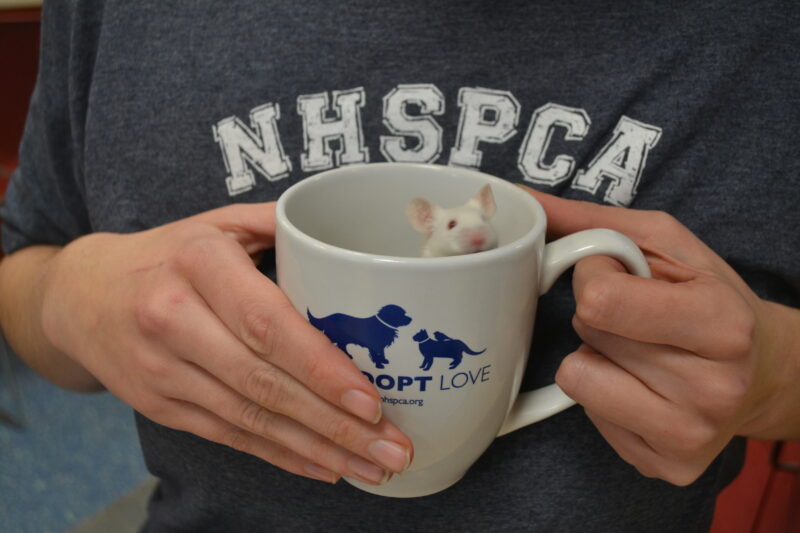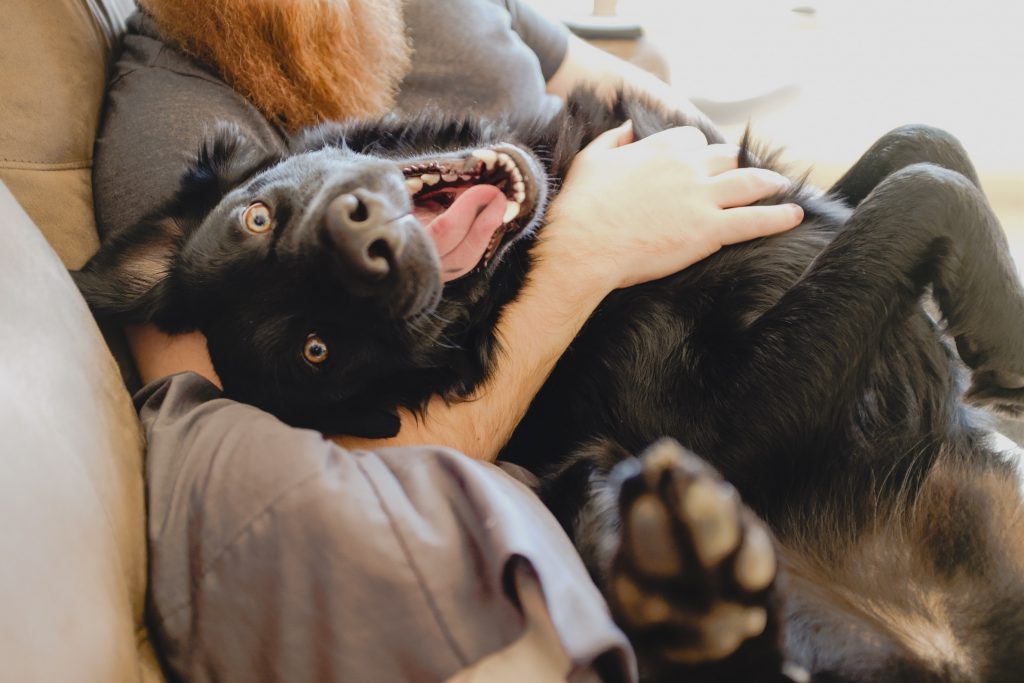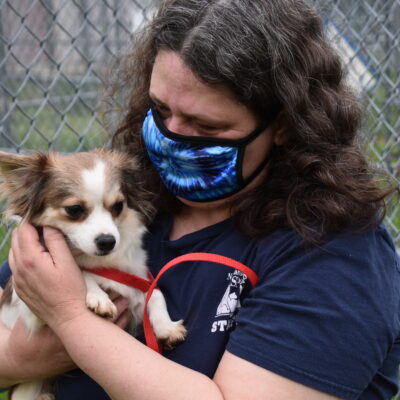
Rescue and adoption have always been a big part of my life. My husband and I have rescued and adopted dozens of animals over the years. So, once I retired from my job as a classroom teacher, as well as my weekend job as a wildlife educator and zookeeper, it seemed logical that I would reach out to the NHSPCA to explore volunteer opportunities.
I had a difficult time adjusting to retirement at first, and I was hoping I could help animals in need as well as find a way to help fill the void in my life.
I started small — literally.
After my orientation with a very energetic and enthusiastic Steve Jones, and my training with a warm and welcoming Emily Sullivan, I began taking care of the small animals at the shelter one or two days per week. I was struck by so many things — the incredible friendliness of the staff, their impressive competence and professionalism, and their unflagging dedication to the care of their animals.
They made me feel like I was part of the team, even drawing on my previous experience with animals and asking me for advice. As time went on, I began to volunteer five to six days per week, taking care of the “smalls,” doing laundry, sorting donations, cleaning, and doing anything else that was needed.
Every single day I was there, more than one staff member would say “thank you” or tell me how much they appreciated the volunteers. I think this is one of the many things about the NHSPCA that makes it a truly special organization.
Fast forward to our current situation. In light of the COVID-19 outbreak, the shelter had to close to the public and suspend volunteer work. As impressed as I was with the quick decision-making and attention to detail in ensuring the safety of the animals and the staff, I once again found myself feeling a sense of loss. My daily trips to help the staff and to get my “animal fix” had come to a sudden halt. Of all the restrictions amid the pandemic shut-down, this was the one that hit me the hardest.
Enter my journey into foster care.
With the shelter closed and the need for foster homes high, I volunteered to take any small animals who needed a place to stay. I had always been reluctant to foster for a couple of reasons. My husband and I have a very high-maintenance umbrella cockatoo, a very needy senior retriever, and I knew if I fostered any animals I would end up adopting them.
But once I started taking fosters I realized how much I enjoyed caring for them, socializing them, and preparing them for life in their forever homes.
Thus far, I have shared my home with two white turtle doves, a pair of green cheek conures, a bunny named Regina, and a shelter favorite — a guinea pig named Ed. It has been gratifying to gain the trust of each of these friends and to help them re-experience life in a home environment. I have had the opportunity to make videos of them for potential virtual adopters, and to educate the adopters on their personalities and care. And, I am happy to report that they have all been adopted!
I have learned many things from taking care of the animals, both at the shelter and in my home. Here are a few key lessons.
First, every one of us, human or otherwise, is unique. There is no “one size fits all” solution to a problem. I have learned to “read” each animal and what their emotional needs are, and to treat them accordingly to try to bring out the best in them. Sometimes it takes longer than others.
Secondly, a little love goes a long way. Having the patience to allow an animal to “warm up” to me enables me to give as much love and affection as he or she will allow. And that love can help an animal feel safe and willing to trust again in a new forever home.
Thirdly, we are all more resilient than we think. Animals can survive the worst of circumstances and go on to live happy lives, just as humans can.
For the moment, instead of looking forward to getting up each day and heading to Stratham, I look forward to emails and phone calls from Dee, Kelly or Denise asking me to take an animal, or asking me to bring one back because it has been adopted. I continue to love being a part of this amazing organization and am learning more about so many aspects of animal rescue and care.
I am finding joy and a renewed sense of purpose in this work, and I am forever grateful to the NHSPCA and the animals for that.
Nancy Melbourne is a volunteer and foster parent at the New Hampshire SPCA.
For information on volunteering, please visit our volunteer page.


